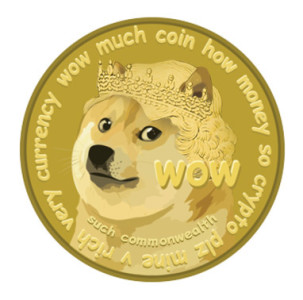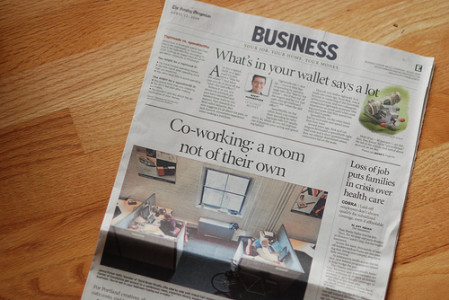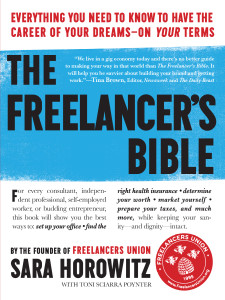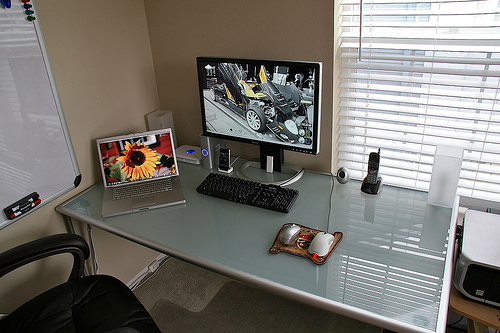Deep down, I’m always surprised when I can give someone a dollar and I get something back. Money — paper or plastic — doesn’t really seem like it should be worth anything. We’re all in on this giant unspoken conspiracy to agree that money will continue working and that we can exchange it.
But while we all do a good job of playing along, I spend a fair amount of time thinking about why the concept of money works. I read an interview with economist Neil Wallace that provides a little insight. I’m going to copy a chunk of the interview here (you can read the whole thing here. The TL;DR is that money is memory — a way to track and exchange favors more than anything else, but Neil Wallace says it better. ‘Region’, by the way, refers to The Region, a publication put out by the Federal Reserve Bank of Minneapolis, which published the interview.
Wallace: Now think about Robinson Crusoe, after he meets Friday. They don’t need money, but again, there might be plenty of absence of double coincidences. Now think further. Here we are in the middle of Pennsylvania. There are lots of Amish communities around here. When they’re isolated, the usual story about an Amish community—or an isolated Israeli kibbutz—is that they didn’t use money.
Region: Trust was their currency.
Wallace: Well, that’s a word that Douglas Gale used, but it’s probably not the best word. Think about this Amish community. The vision is, if my barn burns down, then everybody will come and help me rebuild it. In economics, we try to rationalize behavior without altruism, if we’re able to; so what makes that work without altruism? Everybody notices who shows up to help rebuild it.
Region: A sort of credit accounting.
Wallace: Yes. And the guy who doesn’t show up, if he does that repeatedly, will get kicked out eventually. This can work without money because people remember what people have done in the past.
Region: So, money is memory.
Wallace: Yes, “money is memory” is a casual way to state that. Now, that’s a hugely powerful idea that I and other people have been working with.
Cryptocurrencies Are Just Memory, Too
The concept of ‘money is memory’ works surprisingly well when we think about Bitcoin and other cryptocurrencies. Effectively, every Bitcoin has a record of who mined it and who has held it since — not by name, but by an identifier that lets users be sure that a Bitcoin is a genuine piece of spendable currency. The unbroken chain of provenance lets everyone (at least those who use Bitcoins) agree that a particular Bitcoin is real and not fradulent.
That sort of memory of exchange shows, over and over again, that currency really is a series of shifting of obligations on to the next person. With a cryptocurrency that is essentially unbacked, the only way to get value back out of the money that you have somehow earned is to keep it moving.
Dogecoin is a cryptocurrency with a sense of humor. Based on the ‘doge’ meme (where pictures of a Shiba puppy are surrounded by broken English discussing something amazing, usually in Comic Sans), Dogecoin is similar to Bitcoin but worth far less at this point. A small community of users has sprung up, many of whom have started using Dogecoin as a way to tip people who are doing cool things online. On the Dogecoin subreddit, for instance, there’s now a tool to allow you to reward other reddit commenters with Dogecoins when they share something clever or useful.
Perhaps even more so than other currencies, Dogecoin’s use as a way to tip or otherwise acknowledge small bits of awesomeness reflects the real value of money as a way to trade memories. It’s a way to share a memory that is not quite big enough to be worth paying for — building a barn is a big memory, while sharing a witty comment on a link isn’t nearly as momentous. But even those tiny transactions will build up over time: on a site like reddit, a respected contributor has access to an audience. The same holds true for most websites. When someone consistently shares interesting things online, they’re rewarded with attention, which can lead in turn to financial benefits. Dogecoin tips just allow us to track smaller increments of memories.
The Long Memory of the Internet
It’s funny, in a way, that we have this sense of the internet as the elephant that never forgets: sure, technology has an awkward way of ensuring that your high school shenanigans you shared to Facebook will come back and bite you. But we’re talking about tools that are only a few years old — perhaps as old as a few decades if we’re going to include email — and that are already dealing with an overwhelming amount of data.
Yes, our collective memories are all online, including the ones we regret, but we’re already approaching a point where sorting through all the details is getting tough. What happens when Facebook actually has twenty years of your photos, updates, and likes? What about fifty years? Sorting through all that data to pull out value is going to make current big data efforts look rudimentary at best.
But having that data available also going to make the real value of memory clearer — and make sense of ‘money as memory.’ As we do business on a global scale, we need to be able to comparatively value products and services. Most currencies are essentially contextual: we know the local currency’s value within our day to day activities, but we can’t really guess what another country’s currency is really worth (and the whole idea that people get rich off of trading currencies can be downright scary). But with a shared currency, we can make financial decisions we trust on a global scale. We can trade the memory of painting a house in the U.S. into the memory of a meal in Argentina into the memory of writing software in Thailand.
Cryptocurrencies Aren’t Ready Just Yet
While I am enthusiastic about the concept of digital currencies, I haven’t jumped in — I’m certainly not one of those devotees who have committed themselves to using nothing but Bitcoin! That’s because Bitcoin, and other cryptocurrencies to a lesser extent, aren’t yet stable enough to truly act as a useful global currency. Over the course of 2013, a Bitcoin’s value had two zeroes tacked on to the end, going from $13.50 to well over $1000.
That sort of extreme variation makes it impossible to use Bitcoin in day-to-day business. Even if there were business owners willing to rely on Bitcoin (rather than to accept it as something of a novelty act), the fluctuations have led many users of the cryptocurrency to hoard their money, with the expectation that the value can only continue to increase. We’re essentially in the middle of a Bitcoin bubble — sooner or later, the whole thing is going to fall apart.
And that’s okay. Consider this a first go at the cryptocurrency learning curve. The first recorded fiat currency (currency backed by a government but not pegged to gold or silver) was in 11th century China. The situation fell apart pretty quickly, with the government printing more money and causing inflation. It took a couple of tries for fiat currency to work out. It’s going to take a couple of attempts for cryptocurrencies to work out the kinks. But in the long-term, there’s an incredible potential for the effectiveness of the concept of a digital currency.
Image by Flickr user dilettantiquity




